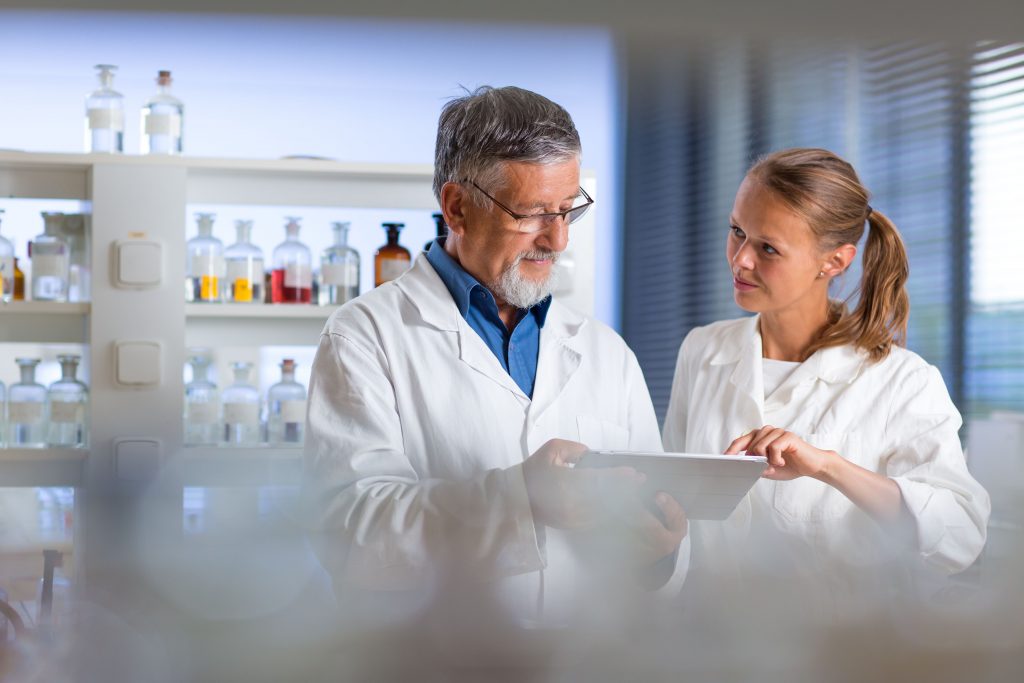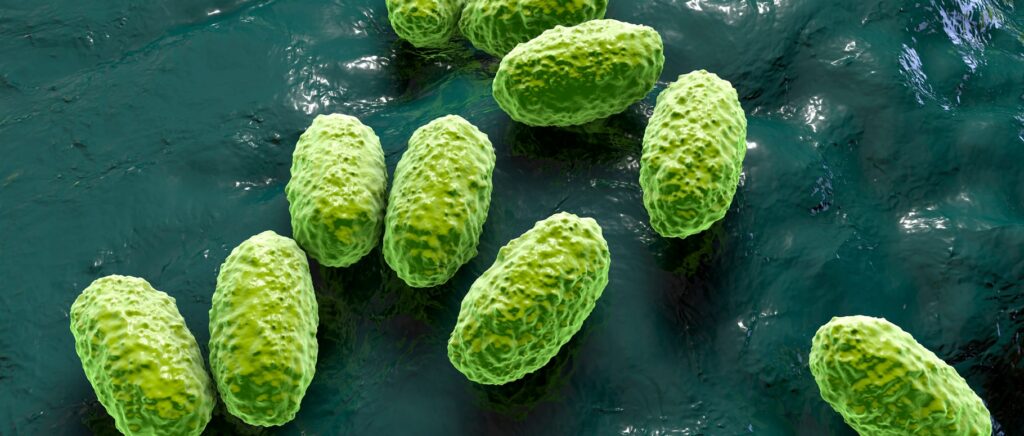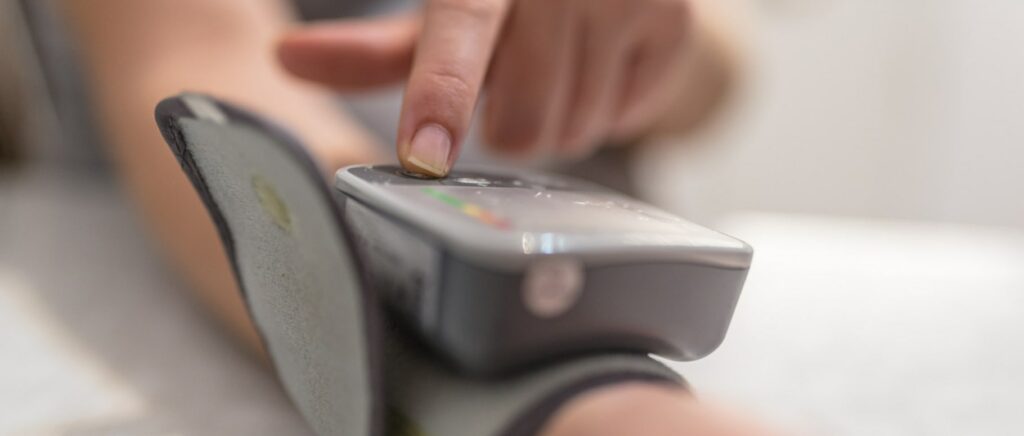
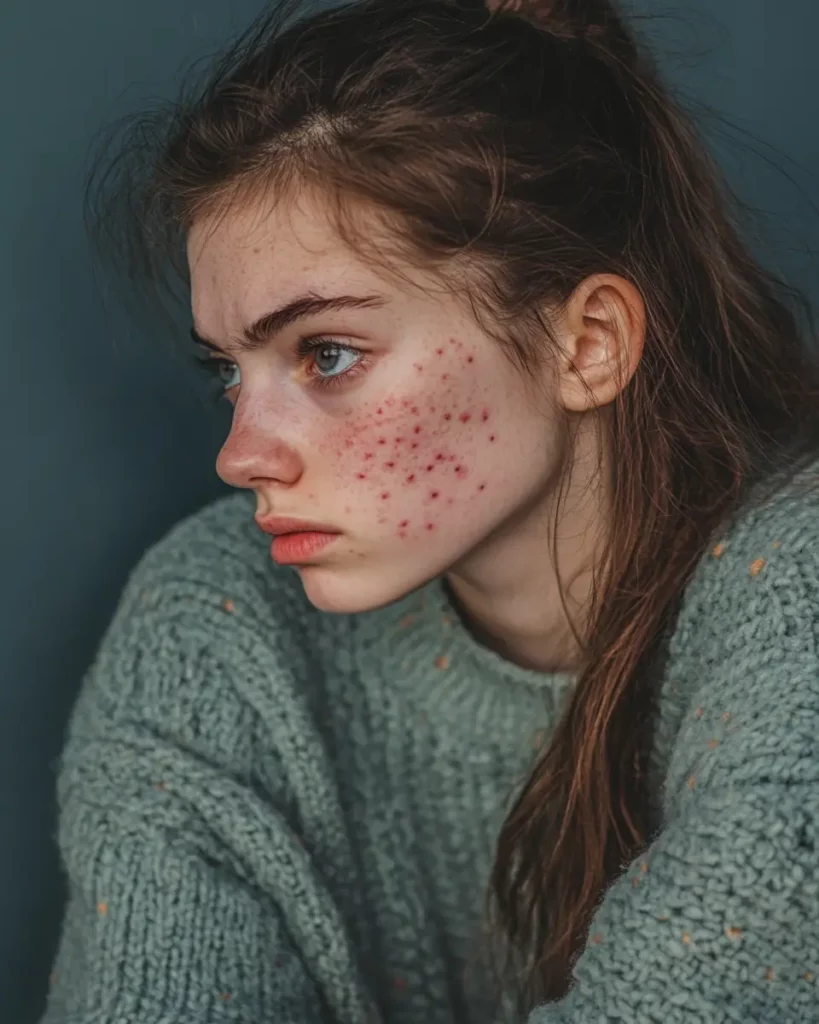
Acne is not only a skin disease, but also a significant psychosocial factor that affects quality of life.
Studies show that people suffering from acne often experience depression, anxiety and social problems.

In this article, we will look at the psychosocial aspects of acne and explore the relationship between skin conditions and mental health.
Impact of acne on quality of life
Acne can significantly affect a person’s daily life. The condition is often accompanied by mood deterioration, lowered self-esteem, and social isolation.
A study published on the National Center for Biotechnology Information (NCBI) website found that acne is associated with increased levels of depression and anxiety in patients, especially among young adults and adolescents.
People suffering from acne often avoid social activities and have difficulty socializing, which negatively affects their social adjustment.
| Factors affecting quality of life in acne | Manifestations |
|---|---|
| Psychological problems | Depression, anxiety |
| Social isolation | Avoidance of social events |
| Decreased self-esteem | Negative perception of one’s own appearance |
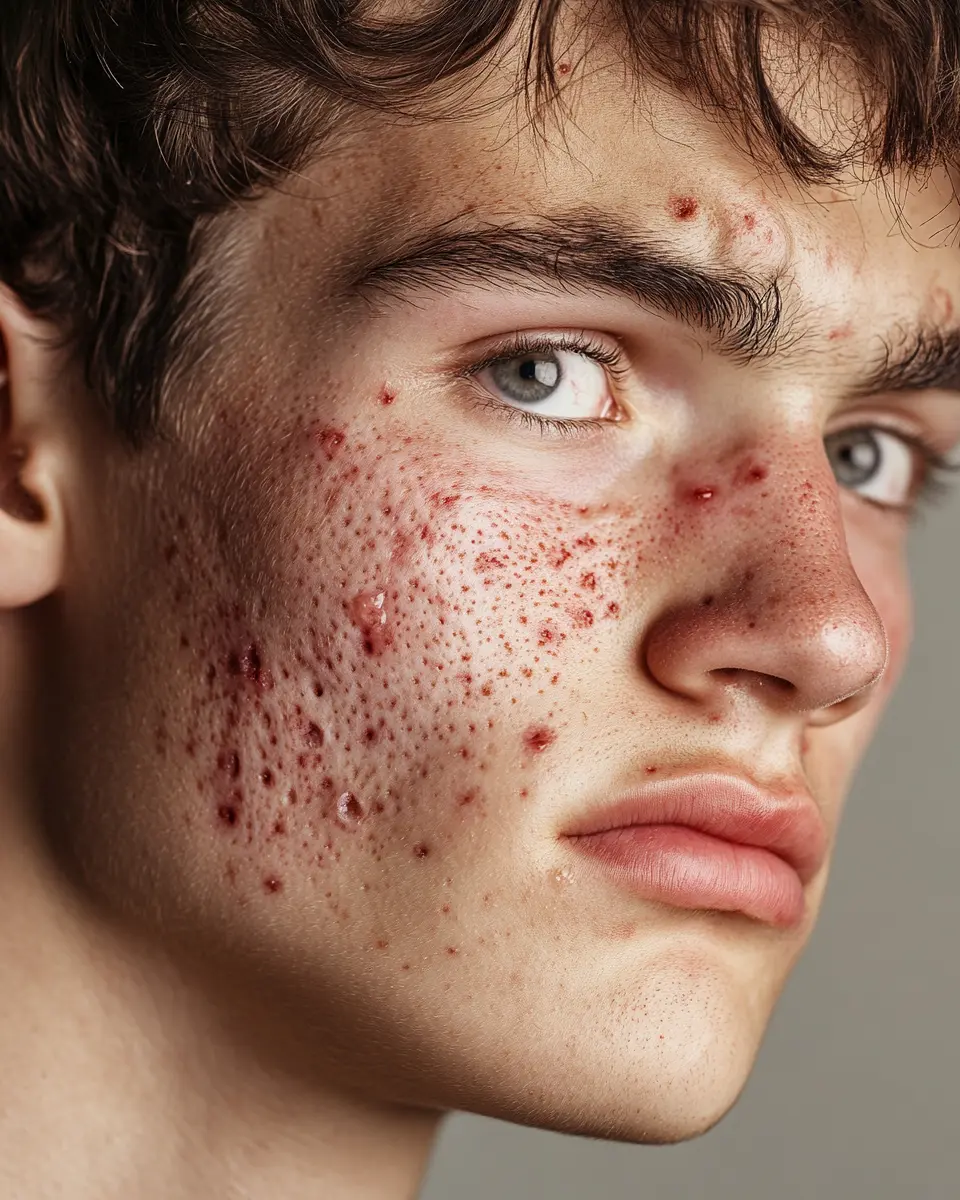
Psychological effects of acne
Depression and anxiety disorders
The psychological effects of acne include depression, anxiety disorders and even suicidal ideation in extreme cases.
Studies have reported that 30-50% of acne patients experience a significant decrease in psychological well-being, confirming the critical importance of a comprehensive treatment approach.
Expert opinion
Professor Jonathan Barker, a renowned dermatologist and acne treatment specialist, notes:
“Acne doesn’t just affect the skin – it affects every aspect of a patient’s life, from their emotional state to their social interactions.”
Key issues associated with acne are anxiety about appearance and decreased self-confidence, which can lead to social alienation and communication difficulties.

Social isolation
Patients often avoid participation in social activities, which increases feelings of isolation and aggravates depression.
This is why acne treatment needs to address not only dermatologic but also psychological aspects, providing patients with appropriate psychosocial support.

Modern methods of acne treatment
Modern approaches to the treatment of acne include both drug and non-drug methods.
A review of clinical trials published over the last decade highlights the following main lines of therapy:
Topical therapy: the use of retinoids, benzoyl peroxide and antibiotics to reduce inflammation and decrease the number of rashes.
According to research, retinoids are the main component of acne treatment because they help to normalize the keratinization of the skin and reduce the number of inflammatory elements.
Systemic therapy: use of antibiotics, hormonal therapy or isotretinoin for severe forms of acne.
Antibiotics help to reduce inflammation and the amount of pathogenic microflora, but according to recent studies, it is important to avoid prolonged use because of the risk of developing bacterial resistance.
Isotretinoin, on the other hand, has proven effective in treating severe acne, but requires careful monitoring by a physician due to potential side effects.
Psychological support: consultation with a psychologist or psychotherapist to improve psychological well-being and reduce anxiety levels.
Psychological support helps patients to cope with negative emotions and improves their social adaptation, which is confirmed by numerous studies.
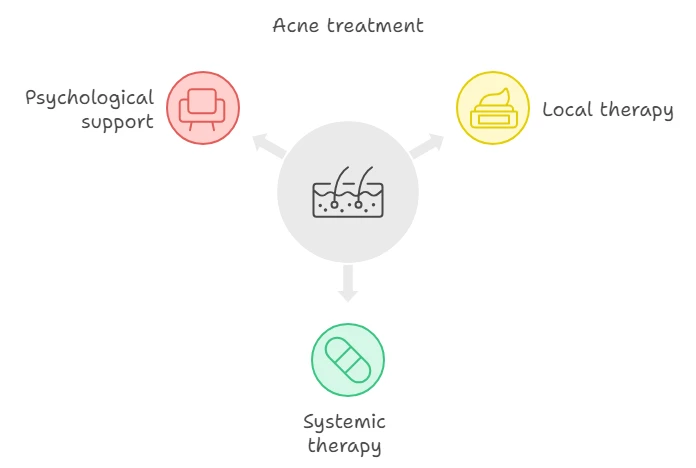
| Acne treatment methods | Description |
| Local therapy | Use of external agents such as retinoids and antibiotics |
| Systemic therapy | Use of systemic medications for complicated cases, such as antibiotics and isotretinoin |
| Psychological support | Therapy to increase confidence and reduce anxiety, improve social adjustment |
Psychosocial interventions
Psychosocial support plays an important role in the treatment of acne, as the emotional and social aspects of the disease can have a strong impact on the patient.
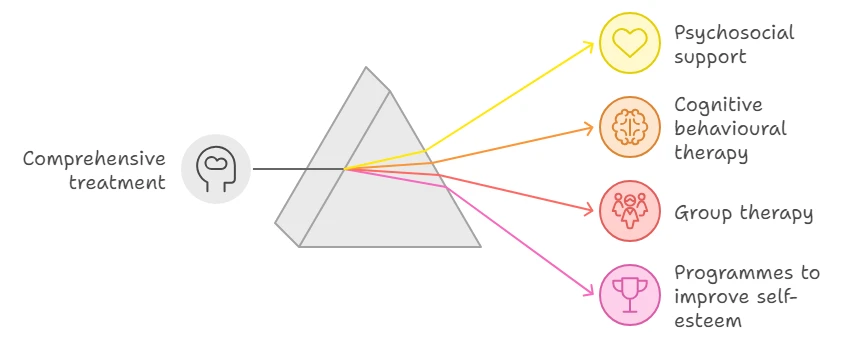
For example, cognitive behavioral therapy (CBT) allows patients to develop strategies for coping with negative thoughts and emotions related to their appearance.
CPT helps identify and change maladaptive thoughts that can increase feelings of anxiety and depression.
Group therapy, where patients share their experiences and receive emotional support from people with similar problems, can also be helpful.
In addition, self-esteem programs can help patients learn to view their appearance positively and develop self-confidence.
It is important to remember that acne treatment should be comprehensive and include not only dermatologic but also psychological approaches, such as counseling with a psychotherapist, to improve the patient’s quality of life.
Conclusions
Acne is not only a dermatologic problem, but also a significant psychosocial factor that affects the quality of life and psychological state of a person.
It is important that patients receive comprehensive treatment that includes both medical and psychological support.
Current research emphasizes the need to pay attention to the mental well-being of people with acne in order to improve their quality of life and facilitate social adjustment.

